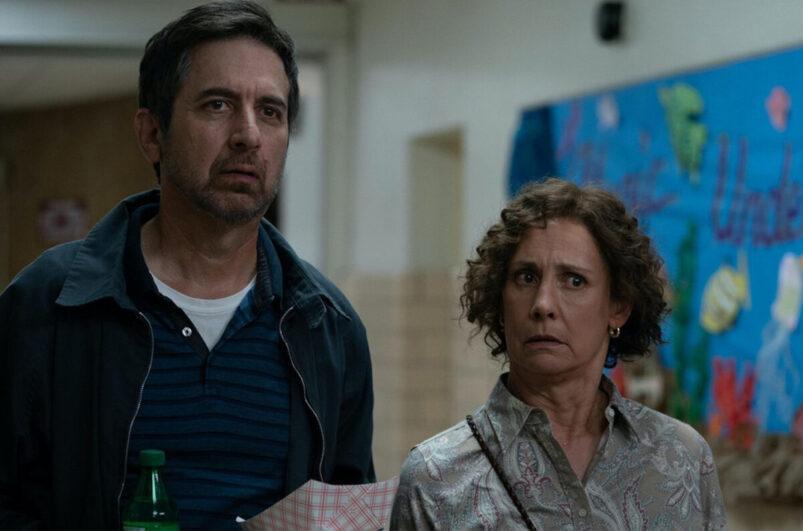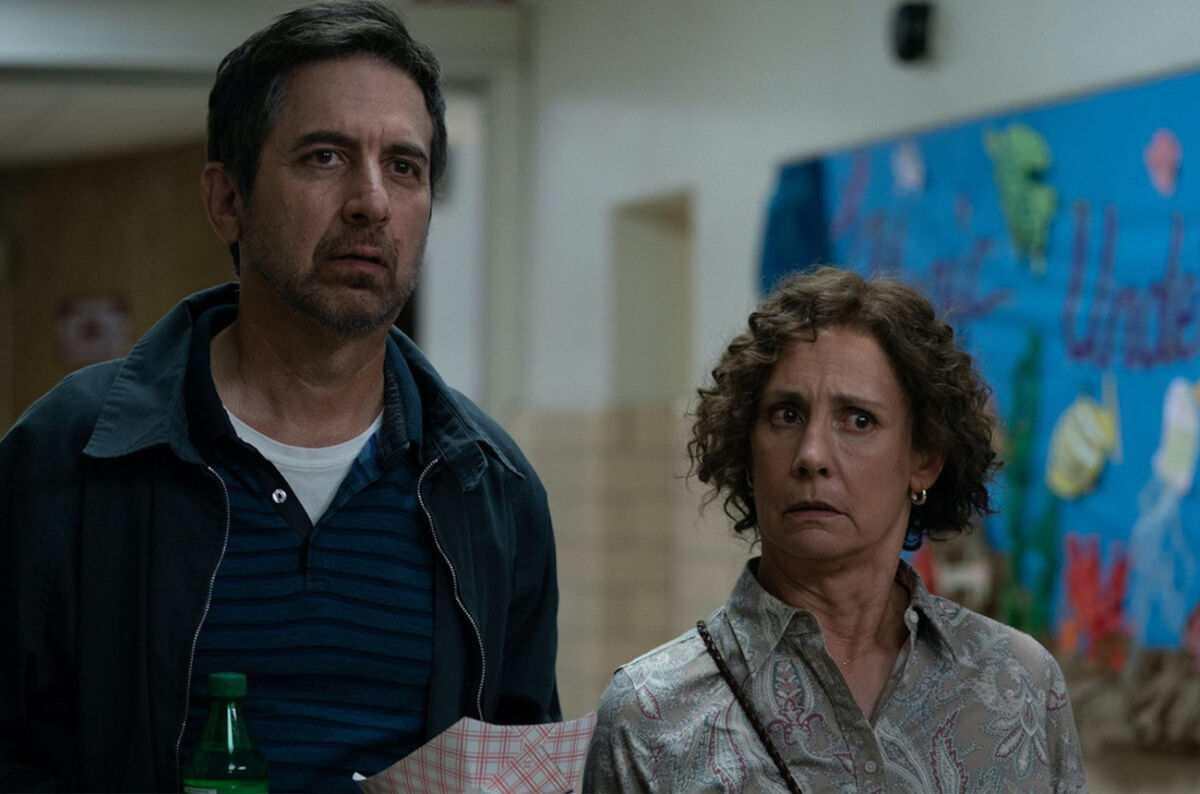Ray Romano has made me laugh all my life. Everybody Loves Raymond was constantly playing in our household growing up, and when I got older he started moving into film, doing great work in movies like Paddleton and The Big Sick. So when I saw that he was triple-hatting for this movie – writing, directing and acting – I knew I was in for a treat.
Romano plays Leo Russo, a man who works for his father’s construction company. He’s practically invisible in his large family, overshadowed by his brother Frank (Sebastian Maniscalco) at work, and not even a notable presence at family gatherings. His son, nicknamed Sticks (Jacob Ward) because of his long legs, is immensely introverted, which doesn’t help when you’re part of a loud, rambunctious Italian family. But it’s different for Sticks out on the basketball court. He’s incredibly talented, and Leo makes it a point never to miss a single one of Sticks’ games. However, is he going because he wants to support his son, or does he enjoy the attention he receives just because he’s Sticks’ father? His name gets chanted at games, he even has enough pull to get seats reserved at the game.
While his character in Everybody Loves Raymond was the favourite, it’s the inverse here with Leo, and Romano does an incredible job with the character. His tiny smile when everyone cheers his name, the utter defeat and slump of his shoulders every time he’s demeaned at work, he helps us understand why Sticks playing basketball is so important to Leo.
During the game, Sticks’ mother Angela (Laurie Metcalf) comes face to face with his girlfriend Dani (Sadie Stanley), a girlfriend they knew nothing about. Dani is fiery and opinionated, and when Angela invites her to dinner, the entire family wonders what she sees in Sticks. With Sticks having such a beautiful and intelligent girlfriend, this raises his social capital within the family, which reflects well on Leo at the same time. The film wants us to consider how we look at our children in relation to ourselves, and how this can be detrimental to them in the long run. Leo went into the family business because that was expected of him, no questions asked. He wasn’t given a chance to explore what he might be interested in, or the dreams he might have had.
Because this happened to him, he subconsciously does it to Sticks, desiring to push him into a fate that would make him special instead of ordinary. He is so zealous to help Sticks that it pushes him to do morally questionable things, and while viewers won’t condone his behaviour, at the same, we understand him. In contrast to other fathers who barely acknowledge their child’s existence, Leo truly loves and cares about Sticks. He’s always encouraging Sticks, building him up, never projecting any sense of disappointment onto him, even though he worries that Sticks will never properly fit in.
Though the film’s main focus is father-son relationships, Angela’s plotline is equally compelling. It fleshes out the difficulty in dealing with a serious illness, and how isolating it can feel because you have no one you can really talk to. There’s a desire to shield your loved ones from the reality you’ve faced, yet everyone also desires to sweep things under the carpet, because no one likes to talk about the hard stuff. In the words of Philip Larkin, being in proximity to illness and death brings us face to face with the “solving emptiness that lies just under all we do”, and it’s easier to small talk our way out of it rather than confront it in any way.
Romano’s direction isn’t flashy, but it does well in communicating what’s necessary for the film. The family gathering set pieces are especially well-directed, as he manages to keep that balance of humour and pathos that’s so intrinsic to the film’s core themes. He can give us a pair of drunk men wrestling over a jacket while also capturing the poignancy of the moment that preceded it.
The film’s message is clear: our children are not extensions of ourselves, so we shouldn’t treat them as such. All we should do is love them the best we can, and empower them to live their best lives.
Review screener provided
READ NEXT: Ranking the Evil Dead Movies From Worst To Best
Some of the coverage you find on Cultured Vultures contains affiliate links, which provide us with small commissions based on purchases made from visiting our site.


